
Erin Garcia de Jesús
Staff writer, Science News
Erin I. Garcia de Jesús is a staff writer at Science News. She holds a Ph.D. in microbiology from the University of Washington, where she studied virus/host co-evolution. After deciding science as a whole was too fascinating to spend a career studying one topic, she went on to earn a master’s in science communication from the University of California, Santa Cruz. Her writing has appeared in Nature News, Science, Eos, Smithsonian Voices and more, and she was the winter 2019 science writing intern at Science News.

All Stories by Erin Garcia de Jesús
-
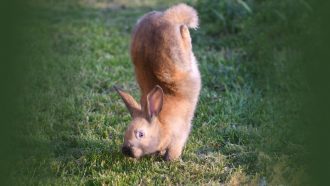 Life
LifeThese rabbits can’t hop. A gene defect makes them do handstands
Mutations in a gene that helps nerve cells work properly rob rabbits of their ability to hop. Instead, the animals use their front paws to move.
-
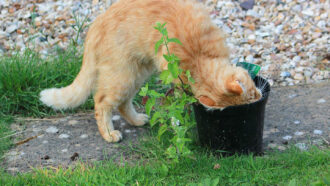 Plants
PlantsScientists may have finally found how catnip repels insects
The plant deters mosquitoes and fruit flies by triggering a chemical receptor that, in some animals, senses pain and itch.
-
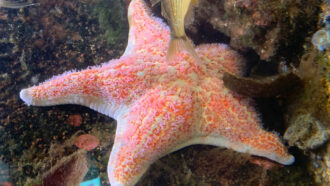 Animals
AnimalsChoked by bacteria, some starfish are turning to goo
For years, researchers thought gooey, dying starfish were infected. Instead, these sea stars are suffocating. And bacteria may be behind it all.
-
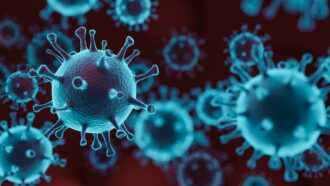 Health & Medicine
Health & MedicineEarly details emerge about the new U.K. coronavirus variant
The variant may spread more easily from person to person. That could make continuing to wear masks all the more important, experts say.
-
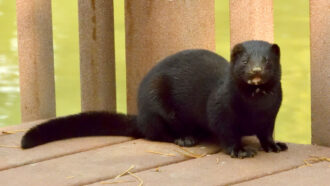 Animals
AnimalsUtah mink is first known case of the coronavirus in a wild animal
A wild mink appears to have picked up the novel coronavirus from farmed animals. Such spread in the wild does not appear common.
-
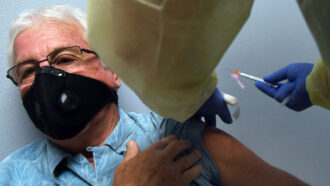 Health & Medicine
Health & MedicineModerna vaccine for COVID-19 appears nearly 95 percent effective
A second coronavirus vaccine appears super effective in preventing people from being sickened by COVID-19.
-
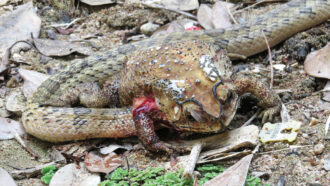 Animals
AnimalsThis snake rips open a living toad to feast on its organs
A particularly gruesome way to kill may help small-banded kukri snakes avoid a deadly poison secreted from the neck and backs of some toads.
-
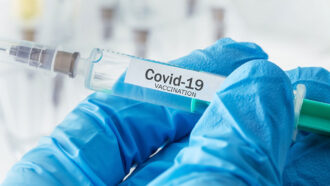 Health & Medicine
Health & MedicineNew Pfizer vaccine appears 90 percent effective against COVID-19
Preliminary finds show one of the new coronavirus vaccines appears 90 percent effective at reducing symptomatic COVID-19 infections.
-
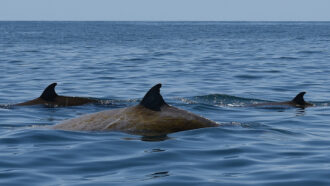 Animals
AnimalsA whale’s nearly four-hour-long dive sets a new record
Cuvier’s beaked whales may rely on large stores of oxygen, a slow metabolism and the ability to tolerate lactic acid to go for hours without surfacing for air.
-
 Health & Medicine
Health & MedicineFour summer camps show how to limit COVID-19 outbreak
Schools might take a lesson from these overnight facilities in Maine. They kept infection rates low by testing a lot and grouping kids into ‘bubbles.’
-
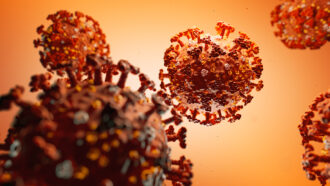 Health & Medicine
Health & MedicineA Hong Kong man got the new coronavirus twice
His is the first confirmed case of reinfection with this virus. His second bout was detected by accident, because he showed no symptoms.
-
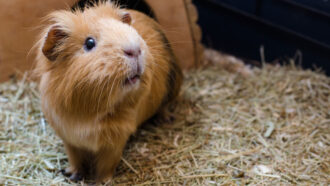 Health & Medicine
Health & MedicineDust can infect animals with flu, raising coronavirus concerns
Dust particles kicked up from some virus-contaminated surface can become a source of new infections, rodent data show.